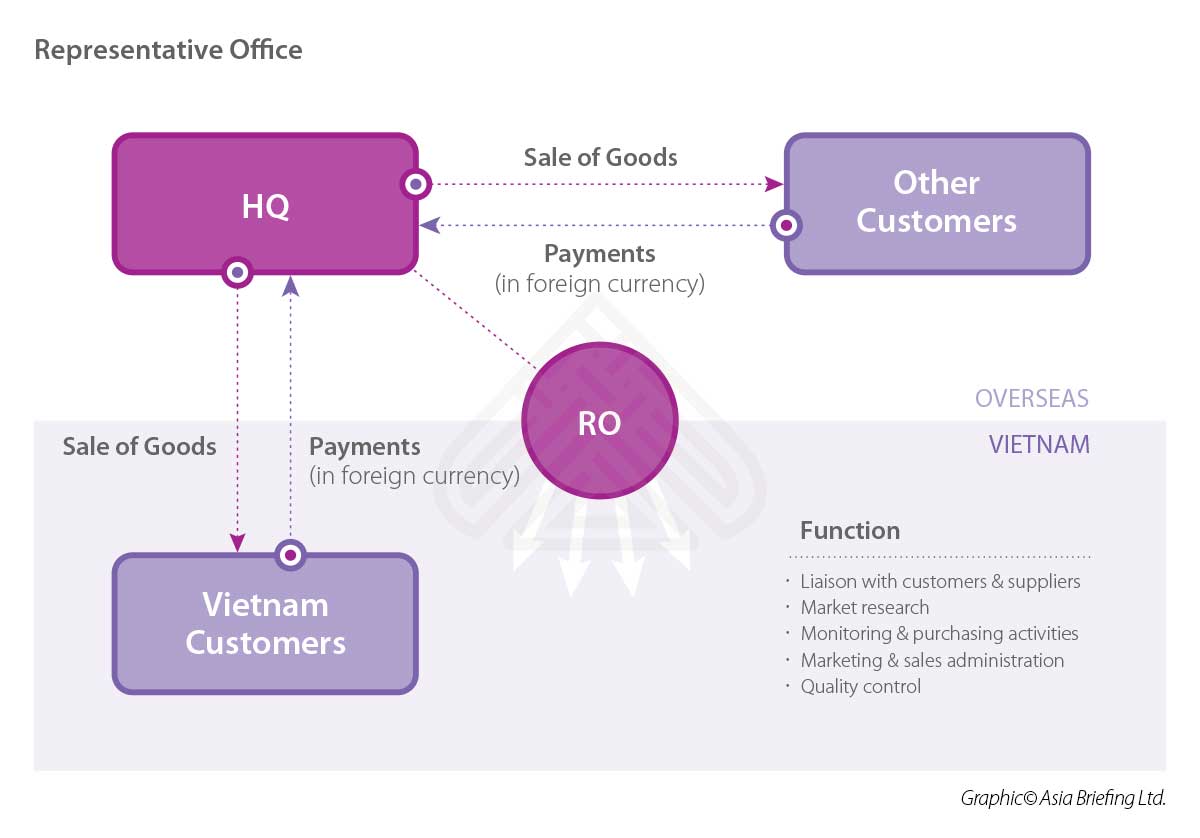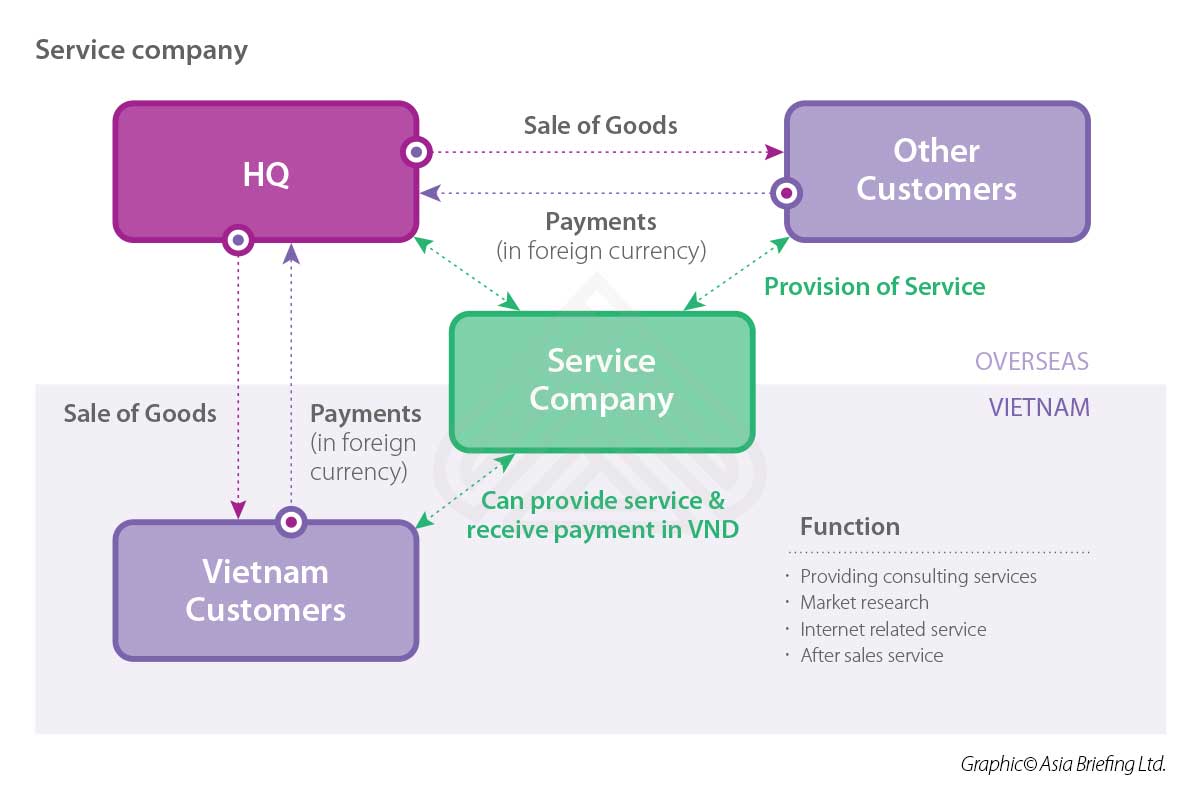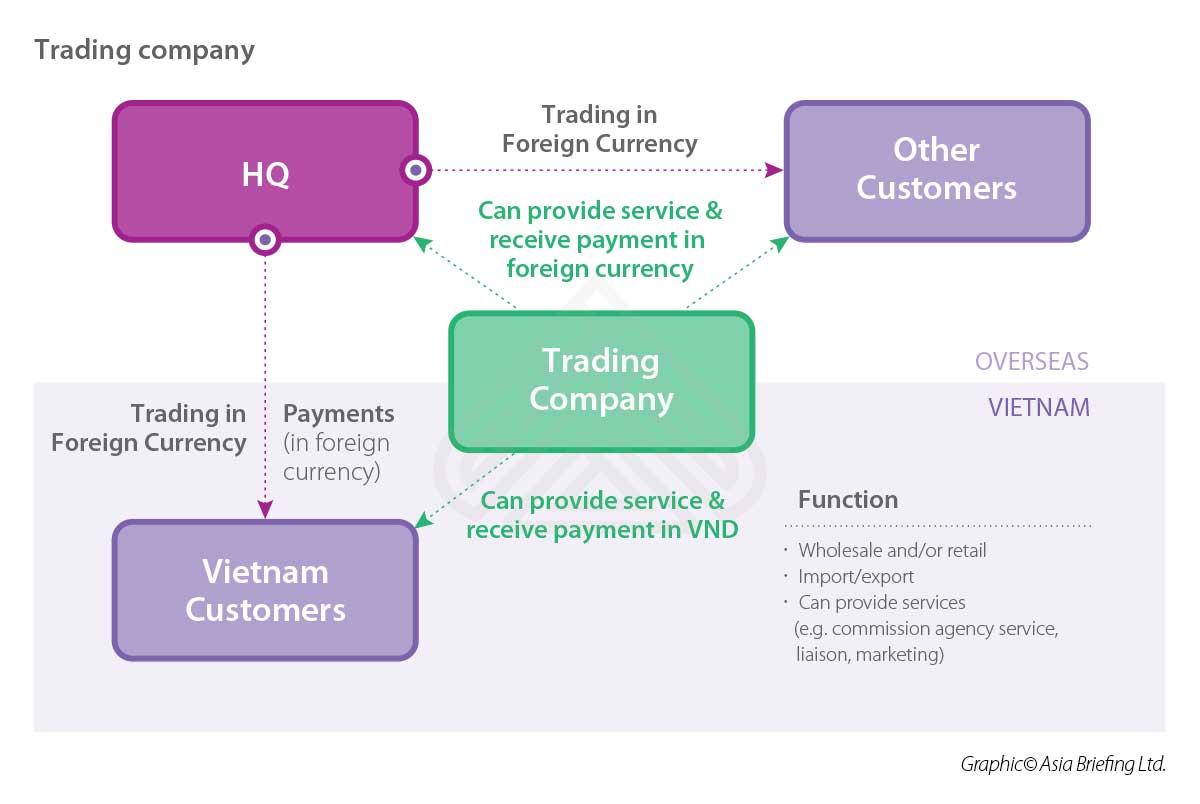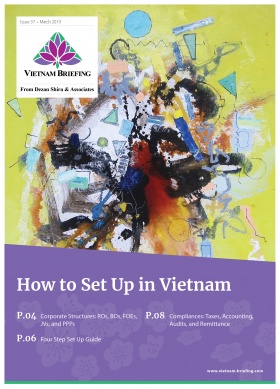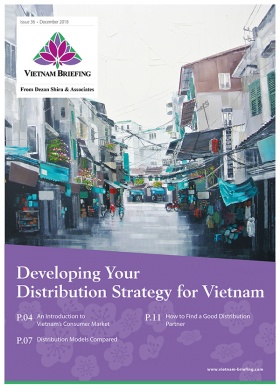How to Pick the Right Business Model for Distributing Goods in Vietnam
For long-term success, companies in Vietnam involved in the sale of goods require a comprehensive distribution network. Choosing the right model is crucial as some platforms will allow companies to study the consumer market with limited control over their distribution partners, while others will give more control to the investors, but will lead to higher costs.
Foreign companies need to decide the most suitable model based on their requirements and capabilities, such as the product or services offered, target market, capital requirements, costs, quality control, and flexibility of its operations. There are three types of entities that can help foreign companies create a distribution platform in Vietnam:
- Representative Office;
- Service company (Limited Liability Company); and
- Trading company (Limited Liability Company).
Each of these models differs from each other and the most suitable model for investors will depend on their goals and scope of operations. We cover the defining characteristics of each of these platforms in this section.
Representative Office
Representative Offices (ROs) are the most inexpensive and simple model to establish in Vietnam. ROs are mostly used for:
- Acting as a liaison for the parent company;
- Maintaining relations with existing distributors;
- Coordinating parent company’s activities; and
- Quality control.
ROs are typically a dependent unit of their respective parent company, forbidden to generate their own profits and prevented from entering contracts directly. ROs have no legal status in the country and can only indirectly interact with Vietnamese business in contract with their parent company.
ROs may recruit local and foreign employees directly or through an agency, lease office space – restricted to only one office in a province or city, equip themselves with facilities necessary for operations, obtain their own company seals, and open local bank accounts for operational purposes.
ROs are better suited for companies looking to gain a better understanding of the market and acting as a liaison for its parent company. ROs are a low-cost entry model as there are no specific capital requirements. However, companies need to show that their capital contributions are sufficient to fund their operations. A minimum of US$10,000 is a suitable amount of investment.
While an RO is relatively easy to establish and operate, they are very limited in terms of operational scope as they cannot issue invoices or sign contracts. However, this is an advantage as it reduces the compliance burden related to accounting and taxes, thus keeping operating costs low.
Despite the limitations, foreign investors often choose ROs as it allows them to keep their cost low, understand the market, and coordinate activities with existing distributors.
Limited Liability Company
A foreign-invested limited liability company (LLC), unlike an RO, can be involved in profit-generating activities and issue local invoices in Vietnamese dong (VND). However, they cannot issue shares. In addition, the liability of the shareholders is limited by their assets in the business. They can also employ local staff directly.
The members of an LLC are only liable for the debts of their partnership limited to their capital contribution that they invested in the company. There is no minimum capital requirement for companies to set up an LLC; however, one needs to make sure that it is a reasonable amount based on the scale and scope of the project. Certain industries such as banking, real estate, and audit services do have a fixed amount of charter capital.
For distribution purposes, they are two types of LLCs:
- Service company; and
- Trading company.
Service company
An LLC rendering services to third parties is a service company. Investors use this model for research activities, quality control, product development, design, and logistical services. It is the simplest form of an LLC, as it requires a shorter time and a lower capital requirement to set up the entity, compared to a trading or a manufacturing company.
Although ROs are the easiest to set up, a service company is a great alternative when the operations and cost of an RO begin to rise. A service company will increase the entity’s operational flexibility.
Trading company
If a company wants to engage in import and export activities in addition to domestic distribution (that is, retail, wholesale, and franchising) in Vietnam, the most common method is establishing a trading company. Generally, setting up a trading company provides foreign companies more operational control in areas, such as sourcing, quality control, and distribution.
Compared to ROs and service companies, investments in a trading company are larger, as it needs to be involved in import and export activities and work closely with suppliers as well as distributors.
The licensing process for establishing a trading company can take between four and six months from the date of submitting the application dossier to the relevant authorities. Under World Trade Organization (WTO) commitments, around 95 percent of goods can be distributed by businesses that are 100 percent foreign-owned.
Winning Vietnam’s Consumer Market
Market observers note that foreign products are generally perceived highly in terms of quality, safety, and reliability. Awareness of brands comes from word of mouth, the internet, market promotions, and advertising.
Location is another factor. Companies selling products related to Vietnam’s infrastructure development, such as energy, aviation, communications, and so on focus in the area around Hanoi, which houses several large state-owned enterprises (SOEs).
Further, the proximity of several government departments makes it convenient when seeking approvals. This is fueled by the demand in these industries by SOEs as well as the proximity of several government demands for approvals.
Businesses should also note that product information should be provided in Vietnamese to local agents and distributors with a local website if possible. Commercial success in the country requires a hands-on approach.
With Vietnam’s economy growing rapidly, local agents and distributors are handling multiple brands that want to enter the Vietnamese market. A good relationship with local distributors allows foreign enterprises to keep up with changes and developments in the local market. Ultimately, businesses may consider a professional service to assist them in developing their distribution strategy.
About Us
Vietnam Briefing is produced by Dezan Shira & Associates. The firm assists foreign investors throughout Asia from offices across the world, including in Hanoi and Ho Chi Minh City. Readers may write to vietnam@dezshira.com for more support on doing business in Vietnam.
- Previous Article 越南的进出口程序
- Next Article 胡志明市第2区-守添新城区(Thu Thiem )指南

